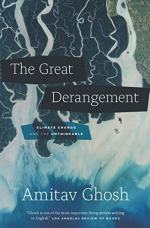|
This section contains 1,548 words (approx. 4 pages at 400 words per page) |

|
Summary
In Part II, Section 5, Ghosh notes that Chinese people used both coal and oil for energy purposes hundreds of years before industrialization. Why, then, he asks, did China not industrialize via coal around the same time that Britain did?
In Section 6, Ghosh quotes at length from his novel The Glass Palace, which is about the discovery of a natural oil reserve in Burma. The passage is based on a 1795 description of an oil creek in Yenangyaung written by a British envoy. The country's economy was oil-based until the British “invaded and annexed” (102) the region in 1885. The oil reserves from this city “became the nucleus of the megacorporation that was known until the 1960s as Burmah-Shell” (102). Meanwhile, across the ocean, the first oil well was established in Pennsylvania in 1859.
In Section 7, Ghosh outlines the history of steam-powered ships becoming...
(read more from the Part II, Section 5 - Part III, Section 2 Summary)
|
This section contains 1,548 words (approx. 4 pages at 400 words per page) |

|




